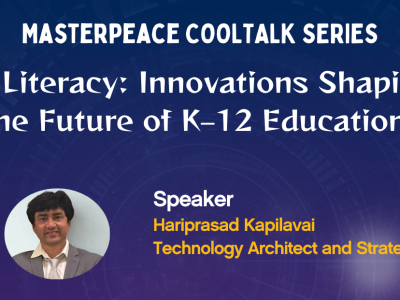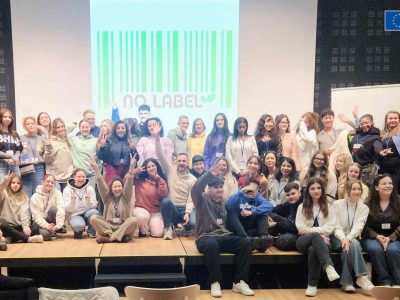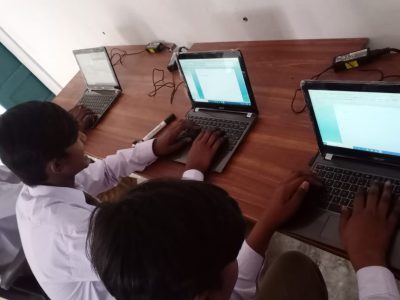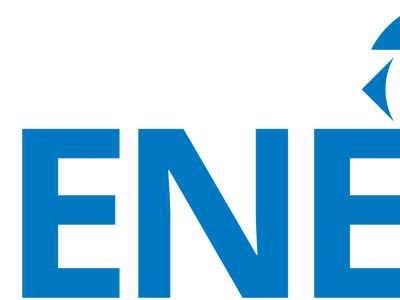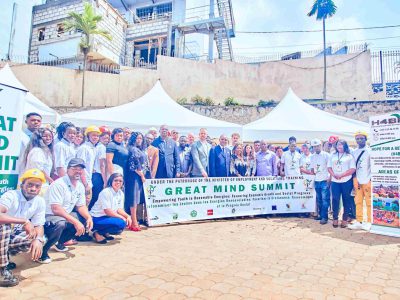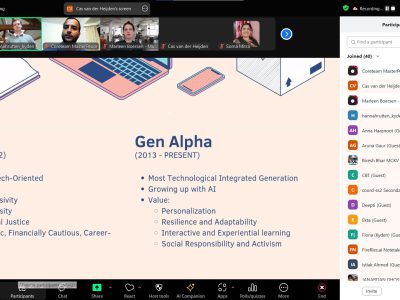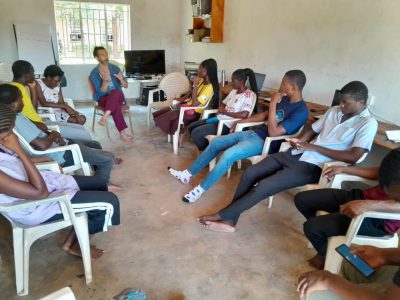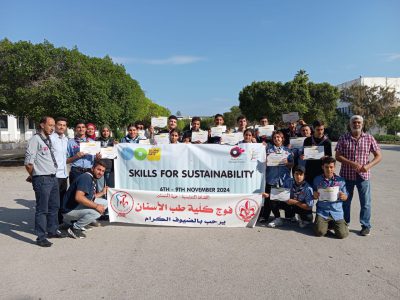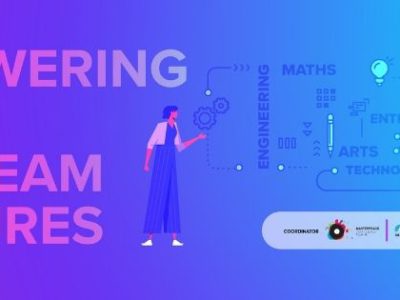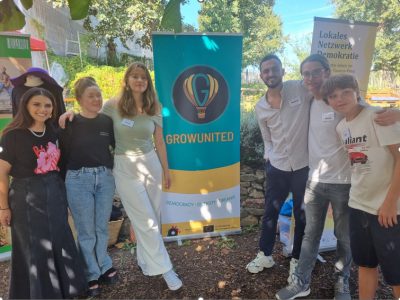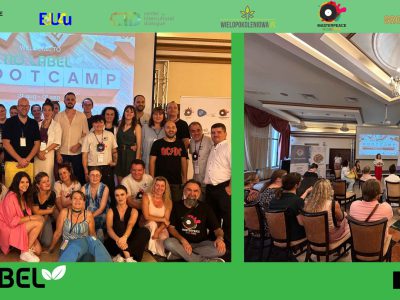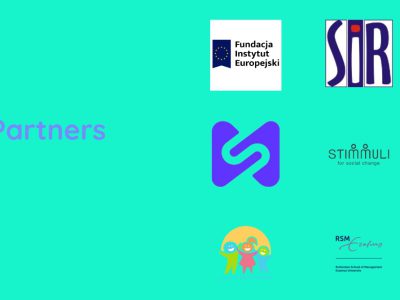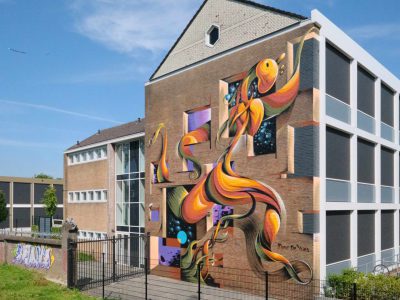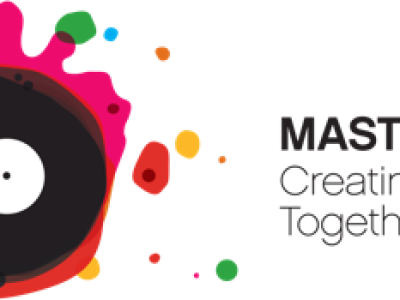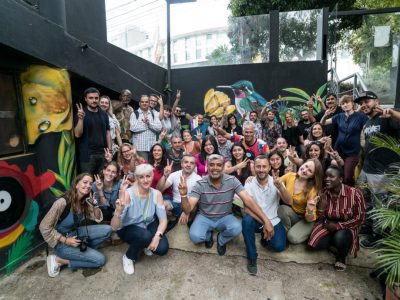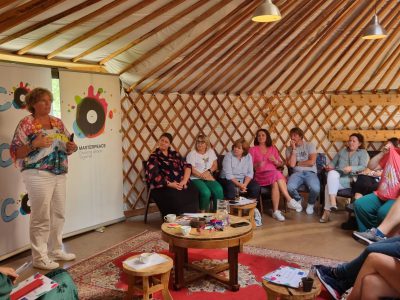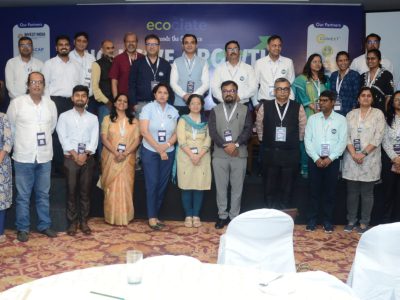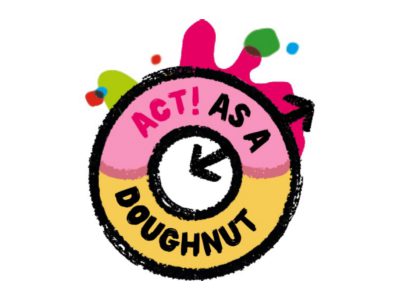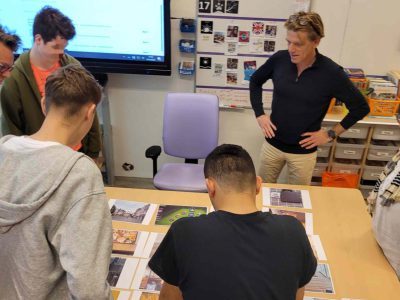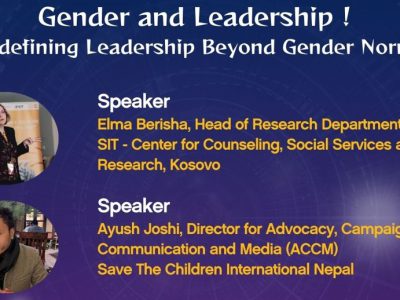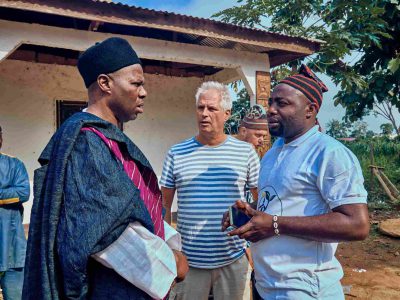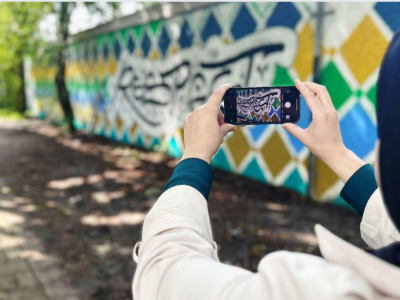Stories
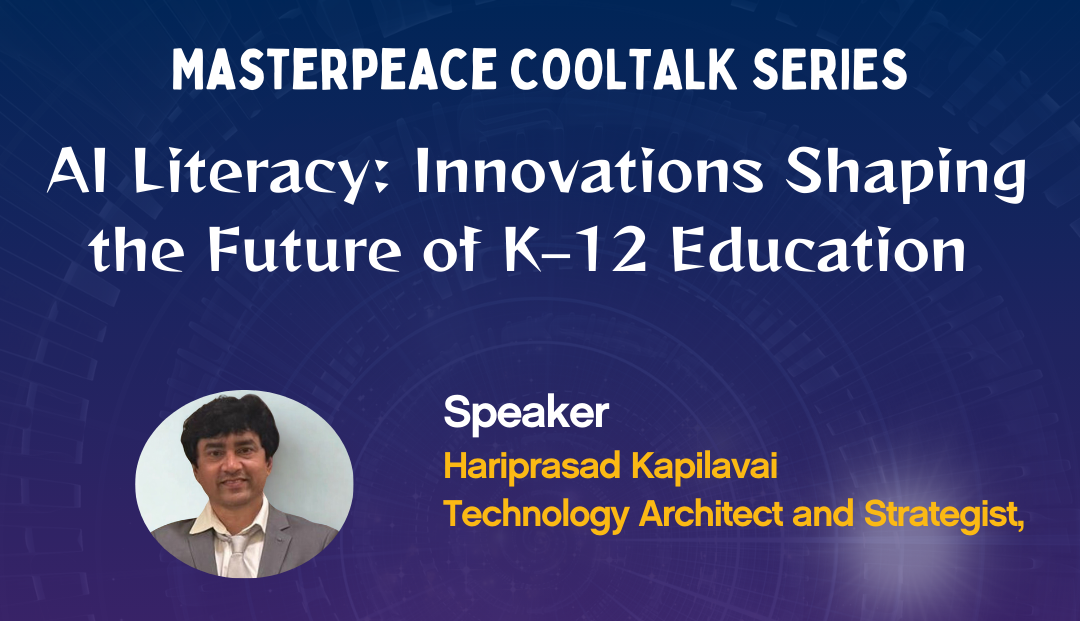
AI Literacy: Innovations Shaping the Future of K–12 Education
The May 2025 session of MasterPeace COOLTalk, titled "AI Literacy: Innovations Shaping the Future of K–12 Education," was conducted by Hariprasad Kapilavai on May 23, 2025, and moderated by Sudipto Dawn. Participants from Africa, Europe, America, and Asia attended the session.
COOLTalk is a regular part of the MasterPeace COOLeaders program. MasterPeace COOLeaders aims to build a new and creative leadership or change makers who bring fresh perspectives and ethical approach filled with care for the natural ecology, mental, physical, economic well being along with a sense of social justice and liberty. The COOLTalk is a way to build awareness and start a dialogue about the key issues pertaining affecting the ecology, society & the individual and creative approaches for enabling and sustaining change.
The phenomenon of AI is changing the, world and is going to have a profound impact on everyone. As such it can widen the divide in the global south-north context leading to ecological, democratic and social crisis. This COOLTalk addressed this issue bringing into focus as to how AI can be integrated into the school education process to enable the students to navigate a new world where they have to co-exist and compete with AI driven consciousness.
Hariprasad Kapilavai is a seasoned technology architect and strategist with deep expertise in multi-cloud integration, enterprise architecture, and AI-driven digital transformation. With an MBA in IT and a B.Tech in Computer Science, he currently serves as a Senior Technology Architect, leading award-winning global initiatives in cloud, AI, and platform modernization. A Senior Member of IEEE and recipient of the Indian Achievers Award, Hari is recognized for his innovation, leadership, and advisory roles across major digital programs. Certified in AI, cybersecurity, and cloud platforms, he is a passionate advocate for reshaping technology education and enterprise readiness in the AI era.
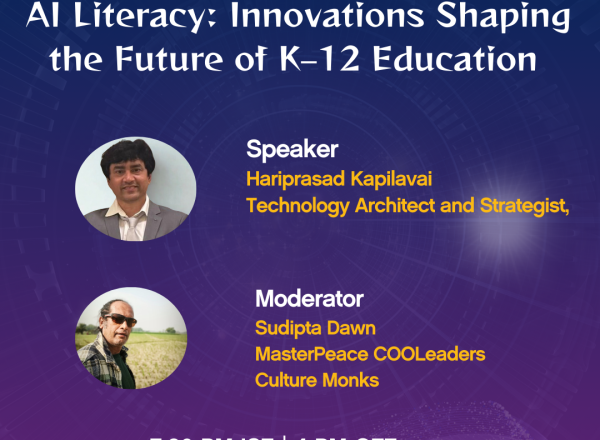
✅ Foundational Importance of AI Literacy (K–12)
- AI is shaping the daily lives of children; early education must equip them to understand, question, and shape this technology.
- AI literacy is essential for equity, opportunity, and democratic participation—not just technical careers.
✅ Global Frameworks Guiding AI in Education
- UNESCO promotes human-centered, ethical AI education.
- ISTE’s AI4K12 framework introduces five core AI concepts: perception, representation, learning, interaction, and societal impact—adaptable across all grade levels.
Innovations by Education Level
✅ Elementary (K–5): “Playful AI”
- Voice Assistants & Storytelling Bots: Introduce natural language processing through interactive reading.
- Robotics Kits (Cozmo, LEGO SPIKE, Cubetto): Blend coding and creativity to teach algorithmic thinking.
- Visual Learning Tools (Quiver, Teachable Machine): Make machine learning concepts intuitive and tangible for young minds.
Goal: Spark curiosity and build foundational intuition—AI is not magic, but a tool built by humans.
✅ Middle School (6–8): “Exploring Ethics and Algorithms”
- Teachable Machine & MIT App Inventor: Deepen understanding of training data, model accuracy, and algorithmic decisions.
- Games and Role-Playing: Tackle AI bias, privacy, and ethical dilemmas through interactive learning.
- Cross-Disciplinary Creativity: Use AI in art, music, and storytelling to expand student engagement.
- Real-World Projects: Apply AI to weather prediction, plant diagnostics, and social issues.
Goal: Foster critical thinking and ethical inquiry—AI systems are created by people, and reflect human choices.
✅High School (9–12): “Building with AI”
- Technical Projects (Python, TensorFlow Lite, Edge AI): Hands-on coding of real AI systems using accessible hardware.
- Career Pathways: Industry mentorships, career talks, and internships connect AI learning to real futures.
- AI for Social Good: Students build chatbots, sentiment analysis tools, and sustainability apps.
✅Open-Source Curriculum: Tools like Google’s AI for Anyone and Microsoft’s AI for Beginners democratize access.
Goal: Empower students to build, critique, and apply AI responsibly—developing leadership and innovation for the digital age
Early AI literacy is not a luxury—it’s a necessity. By introducing AI across all grade levels, we’re not just preparing students for tomorrow’s workforce; we’re cultivating thoughtful, ethical leaders who can shape the future with wisdom, creativity, and responsibility.
The keynote address provoked many questions from he participants. Nico de Klerk from South Africa expressed his fear that AI will lead to loss of job and freedom, while January from Malawi felt that the teachers at the Innovation Center which he has established need to be updated about integrating AI into their education system. Enock from MasterPeace Uganda wanted to explore ways though which AI could be integrated with a project for early education which he is in the process of devising.
There are also severe concerns as to how the market forces will manipulate AI to further drive consumerism bd radical behavior in societies. The need for AI driven education or information system for children and teenager needs to be responsible and responsive to the cultural norms of the diverse communities around the world. It was decided that Hari and MasterPeace will work towards briding he AI divide by building capacity and resources for communities in Africa and Asia.
Once again it was an engaging and enriching MasterPeace COOLTalk thanks to Hari for making it meaningful for he MasterPeace community around he world.

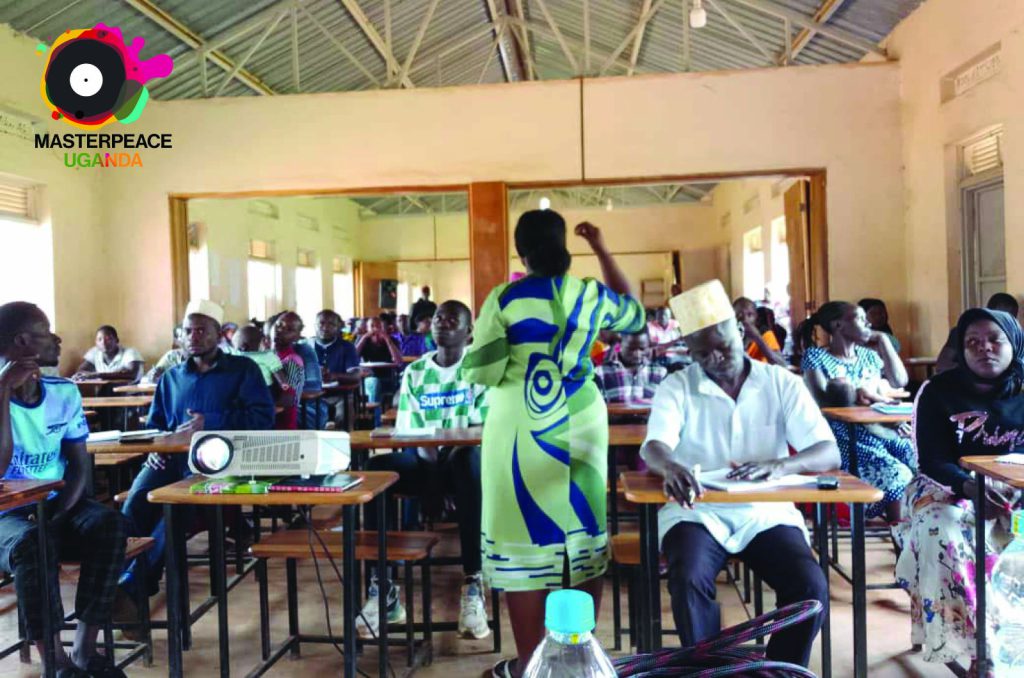
How MasterPeace Uganda Is Changing the Game ?
The Knowledge Gap: Why Africa Remains Stuck in Legacy Poverty For centuries, Africa’s wealth creation model has relied on general knowledge—basic education, traditional skills, and informal economies. While this has sustained livelihoods, it has failed to generate legacy wealth—the kind that transforms nations and lifts generations out of poverty. The reason? A critical lack of specialized actionable knowledge. 1. General Knowledge vs. Specialized Actionable Knowledge- General knowledge (what most African youth are taught) includes basic literacy, generic business skills, and theoretical education. It helps people survive but rarely enables them to negotiate better deals, innovate, or compete globally.- Specialized actionable knowledge (what builds economies) includes high-demand digital skills, advanced agribusiness, strategic resource negotiation, and tech-driven entrepreneurship. This is how nations like the UAE, Singapore, and South Korea rapidly industrialized. Africa’s Reality: - Natural resources are exploited because local leaders and communities lack the specialized knowledge to negotiate fair agreements. - Youth unemployment is rampant because education systems prioritize theory over practical, industry-aligned skills.- Economic sabotage persists as foreign entities extract value while local populations remain in poverty. 2. The Cost of Ignoring Specialized Knowledge- Unfavorable mining/oil deals leave African nations with minimal benefits. - Youth stuck in informal jobs due to a mismatch between education and labor market needs. - Dependency on foreign expertise even in sectors where Africa has a comparative advantage (agriculture, tourism, renewable energy).
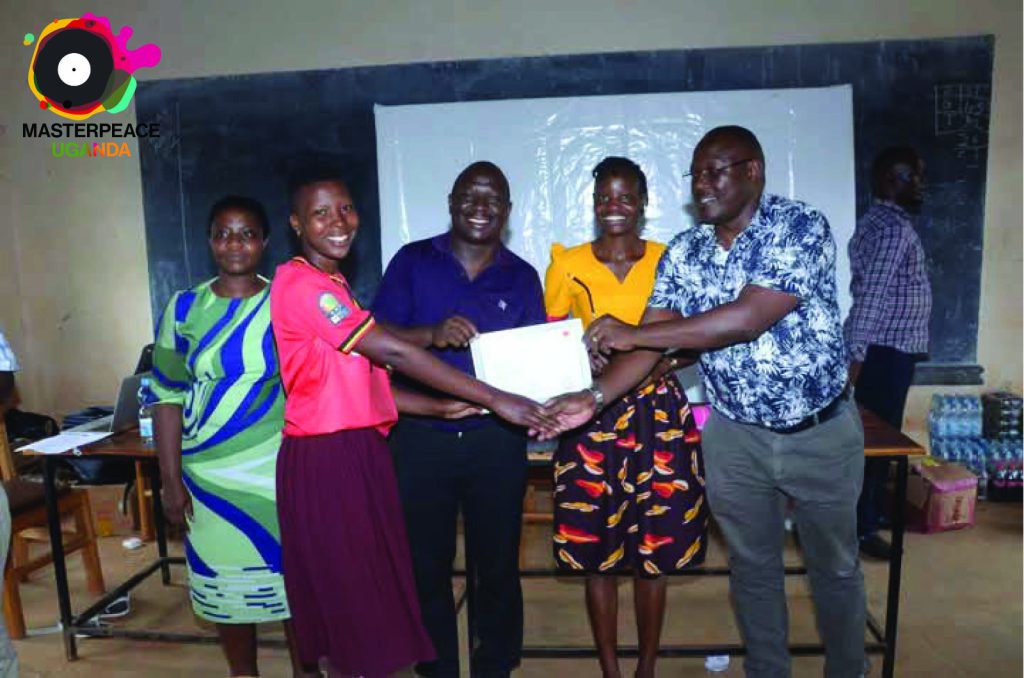
MasterPeace Uganda’s Solution: Empowering Youth with Actionable Expertise Recognizing this gap, MasterPeace Uganda—a youth empowerment organization under the award-winning MasterPeace Global Foundation—is taking bold steps to equip Ugandan youth with specialized, high-impact skills. 1. Industry-Aligned Skills Training (Not Just Theory)
- Partnering with Able Holdings Ltd and other organizations, MasterPeace Uganda's WealthConnect Hub program offers:
- Digital and Tech Skills (AI, coding, data analytics)
- Agribusiness and Green Manufacturing (value addition, sustainable practices)
- Hospitality and Tourism Management (leveraging Uganda’s growing sector)
Furthermore, MasterPeace Uganda, in partnership with BrighterMonday Uganda and with support from the Mastercard Foundation, is currently implementing the Young Africa Works: Upskilling Youth In Uganda Program. This initiative aims to train 150,000 young people by 2026, with a goal of placing 40,000 of them in dignified jobs. 2. Youth Innovation Hubs (Inspired by UAE’s Success)The UAE transformed from a desert economy to a global hub by leveraging specialized knowledge in finance, tech, and renewable energy. MasterPeace Uganda is replicating this with:
- 15 Youth Network Centers by 2030 (incubators for startups)
- 500+ youth-led projects in fintech, agribusiness, and clean energy
3. Policy Advocacy for Systemic Change
- Researching gaps in youth employment policies
- Advocating for tax incentives for youth-led businesses
- Pushing for better natural resource agreements that benefit local communities
4. Leadership & Economic Empowerment
- Annual leadership training for 2,000+ youth (70% female)
- 60% of graduates earning above the poverty line within 2 years
The Future: A Uganda Where Youth Thrive Through Knowledge & Opportunity MasterPeace Uganda’s model proves that Africa’s youth don’t need handouts—they need specialized skills, innovation hubs, and policy influence. By shifting from general knowledge to actionable expertise, Uganda—and Africa—can break free from legacy poverty and build legacy wealth. Join the Movement- Invest in youth skills development- Support policy reforms for fair resource management - Partner with MasterPeace Uganda to scale impact Because the future of Africa depends on what we do—or fail to do—today.--- Contact MasterPeace Uganda:Email: masterpeaceu@gmail.com | Phone: +256-772-987442 |Website: www.masterpeaceug.org
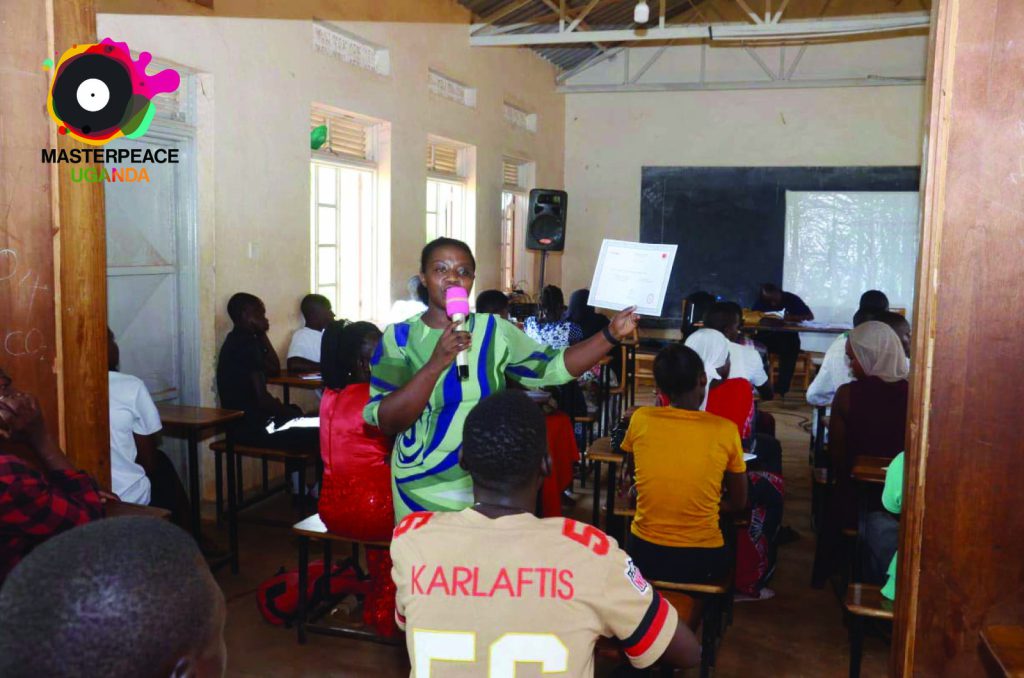
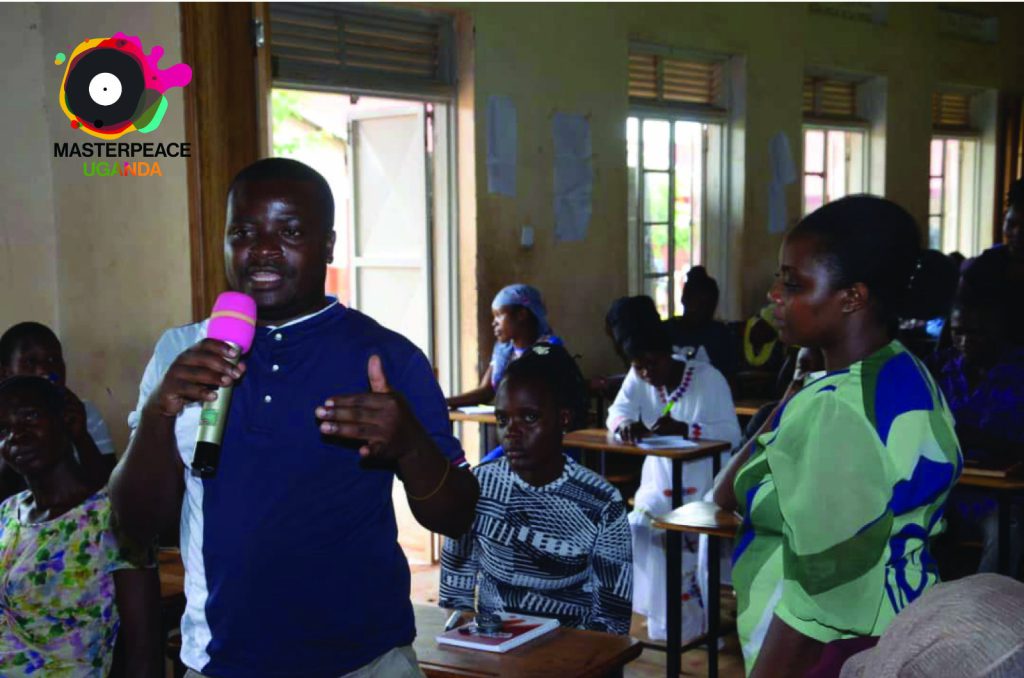

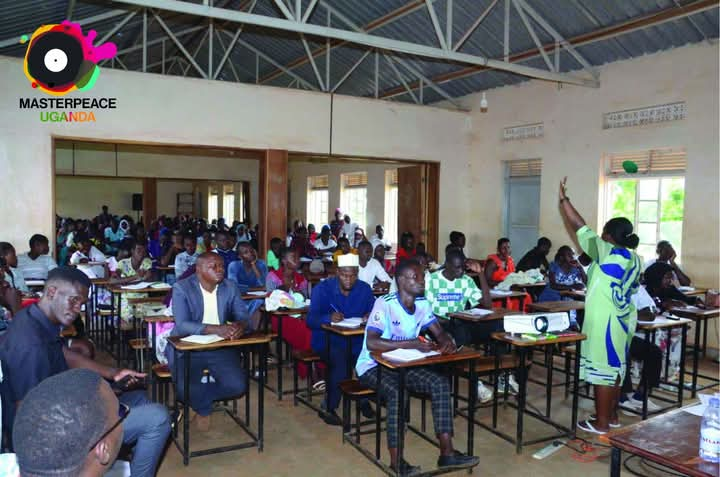
The Knowledge Gap Holding Africa Back.Africa’s economies rely heavily on general knowledge—basic education, traditional trades, and informal work. While this sustains livelihoods, it hasn’t created legacy wealth—the kind that transforms nations. The missing link?Specialized, actionable knowledge: skills like AI, advanced agribusiness, and strategic resource negotiation that fuel modern economies. Why It Matters:- Resource-rich, revenue-poor: Africa loses billions due to unfavorable deals where locals lack expertise to negotiate fair terms. - Youth unemployment crisis: Schools teach theory, but markets demand digital, technical, and entrepreneurial skills. - Dependency trap: Even in agriculture and tourism—sectors where Africa excels—foreign expertise often dominates.
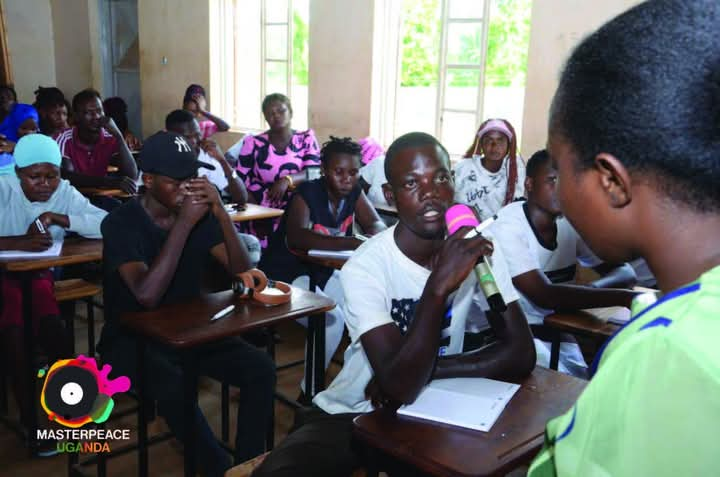
MasterPeace Uganda’s Solution: Skills That Drive ChangeMasterPeace Uganda, part of the award-winning MasterPeace Global Foundation, is tackling this gap by equipping young Ugandans with high-demand, practical skills: 1. Industry-Ready Training - Digital skills (AI, coding, data analytics) - Agribusiness and green manufacturing - Tourism and hospitality management - Impact: Over 150,000 youth trained by 2026 (via the Young Africa Works program with Mastercard Foundation), with 40,000 placed in jobs. 2. Innovation Hubs for Youth - 15 Youth Network Centers by 2030, modeled after UAE/Singapore’s success, to incubate startups in fintech, clean energy, and agribusiness. 3. Policy Advocacy - Researching gaps in youth employment policies. - Pushing for tax incentives for youth-led businesses. - Demanding fairer natural resource deals. 4. Proven Results - 60% of graduates earn above the poverty line within two years. - 70% female participation in leadership programs. The Path ForwardAfrica’s youth don’t need handouts—they need skills, opportunity, and influence.MasterPeace Uganda’s model shows that with specialized knowledge, Uganda—and the continent—can shift from legacy poverty to legacy wealth.
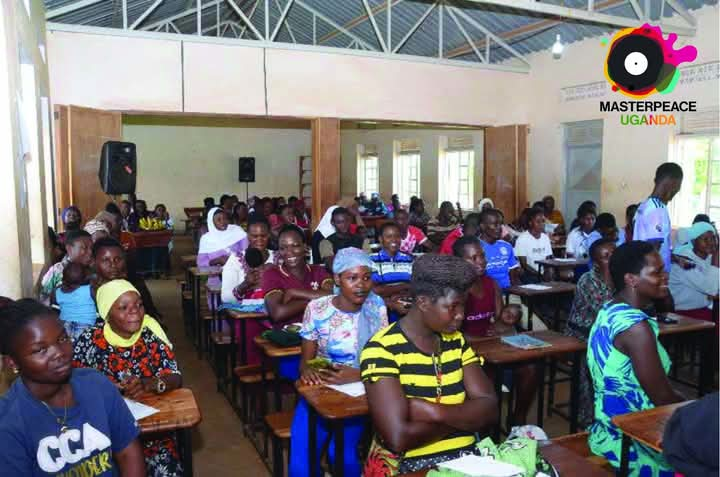
Join the Movement: - Invest in youth skills development. - Advocate for policy reforms. - Partner with MasterPeace Uganda. Contact:  masterpeaceu@gmail.com |
masterpeaceu@gmail.com |  +256-772-987442 |
+256-772-987442 |  www.masterpeaceug.org --- Inspired by Action. Driven by Knowledge. Built for Impact. --- Final Thought: "You can’t solve today’s problems with yesterday’s knowledge. Africa’s next revolution will be skills-led."
www.masterpeaceug.org --- Inspired by Action. Driven by Knowledge. Built for Impact. --- Final Thought: "You can’t solve today’s problems with yesterday’s knowledge. Africa’s next revolution will be skills-led."
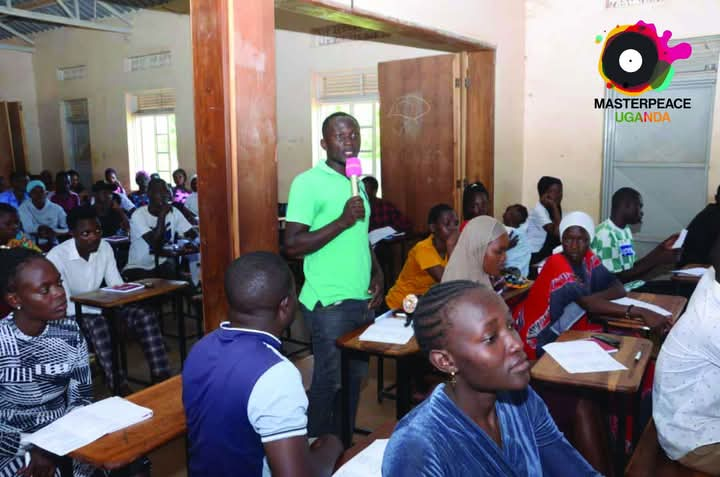
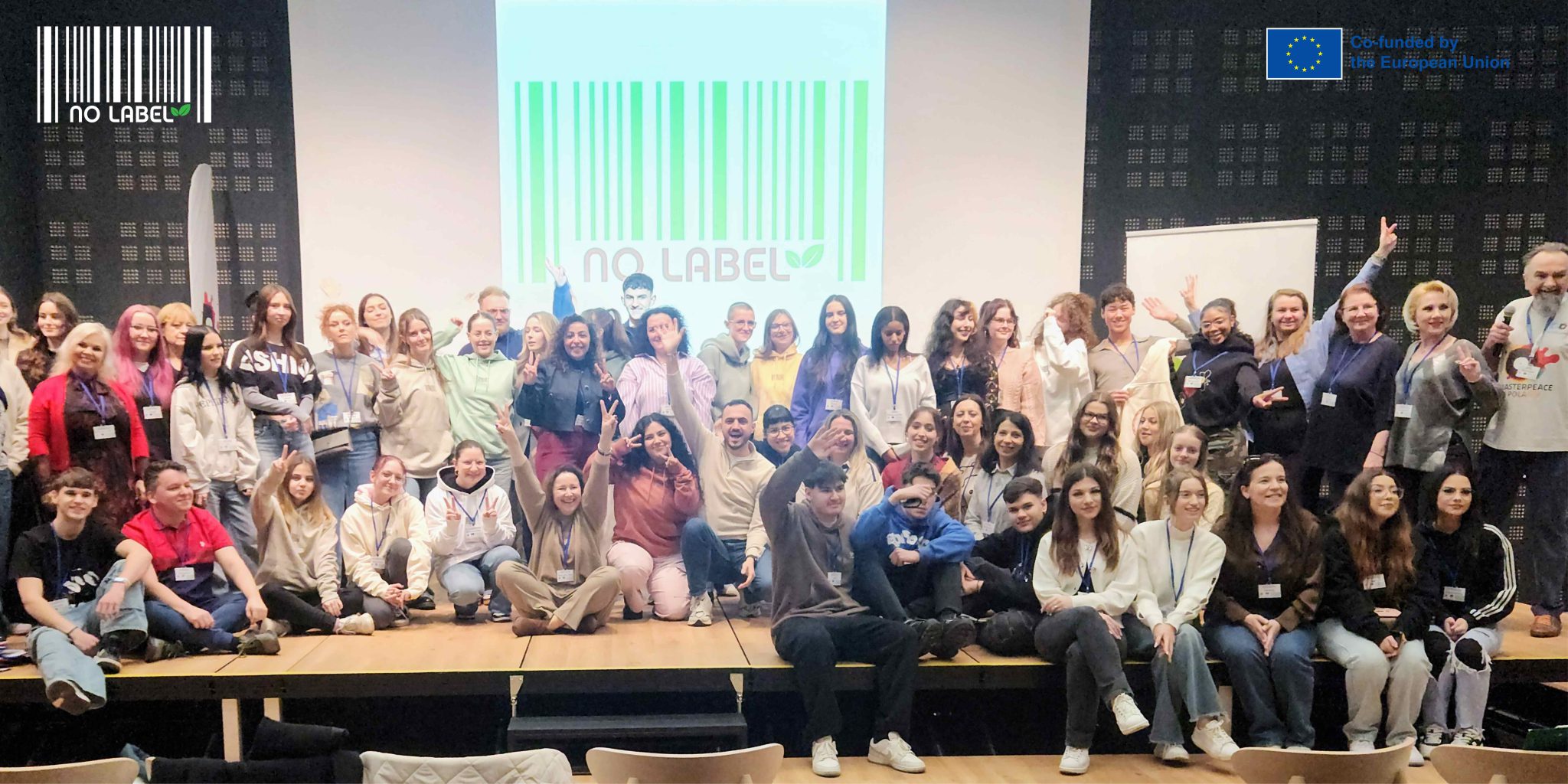
No Label Hoodie Project: A Journey Towards Sustainable Fashion 🌍👕
At Albeda College Beauty & Fashion, creativity meets consciousness! At the end of 2024, students embarked on a mission to design their own unique hoodies, inspired by sustainability and innovation. Once again, in 2024, Albeda was recognized as the most sustainable vocational school in the Netherlands! With an impressive score of 93% on the SustainaBul MBO ranking, Albeda continues to lead in sustainable education—making them the perfect partner for our No Label Project.
Inspiring Workshops & Conscious Design
On November 20, students participated in workshops on the Donut Economy and Artivism as part of the No Label Project. These sessions encouraged them to think critically about the fashion industry and embrace sustainable practices. 💡♻️
December 19 marked a significant milestone as students presented their mood boards and design concepts. A select group was chosen to represent Albeda and the Netherlands at the Sustainable Fashion Show in Krakow, Poland in March 2025! 🌱
On January 28, these selected students hosted an online panel discussion on microtrends and sustainability, exploring key topics such as:
- What are microtrends?
- Are microtrends sustainable?
- The role of influencers and online media
- How can young people influence or counter microtrends?
- The social impact of microtrends (FOMO, mental health, and more)
- Our vision for an ideal world – with or without microtrends
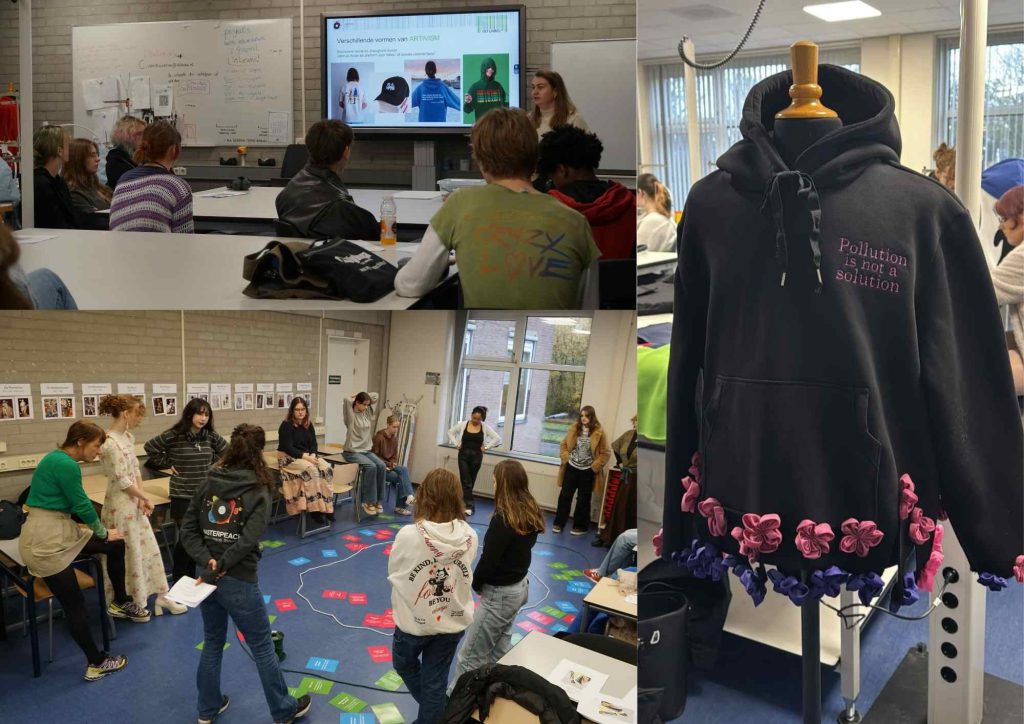
The No Label Project Continues!
While the hoodie project officially concluded at the end of January 2025, this is only the beginning. Students will continue to participate in exciting initiatives, including:
- A Style Hackathon
- A Black Friday campaign in 2025 promoting ethical consumerism.
- A special event in North Macedonia focused on conscious consumerism.
Stay tuned for updates on their inspiring journey! 🙌
No Label Youth Exchange in Krakow, Poland 🌱
March 24 & 25, 2025
Day 1: Connecting & Creating
Movers & Shakers from Germany, Slovakia, Romania, North Macedonia, Poland, Ukraine and the Netherlands gathered to explore sustainable fashion. Over the past months, they worked on no-waste designs and strategies to promote sustainability in the fashion industry.
Key activities included:
- 🌟 Presenting their designs and sharing creative visions.
- 🎨 Participating in artivism workshops.
- 🏙️ Exploring the beautiful city of Krakow.
The biggest highlight? 👗 Attending the No Waste Fashion Show at Krakow Sustainable Fashion Week! A stunning catwalk showcase featured zero-waste fashion by SAPU students and our Movers & Shakers, set against the spectacular backdrop of the Krakow Aviation Museum. 🚀♻️
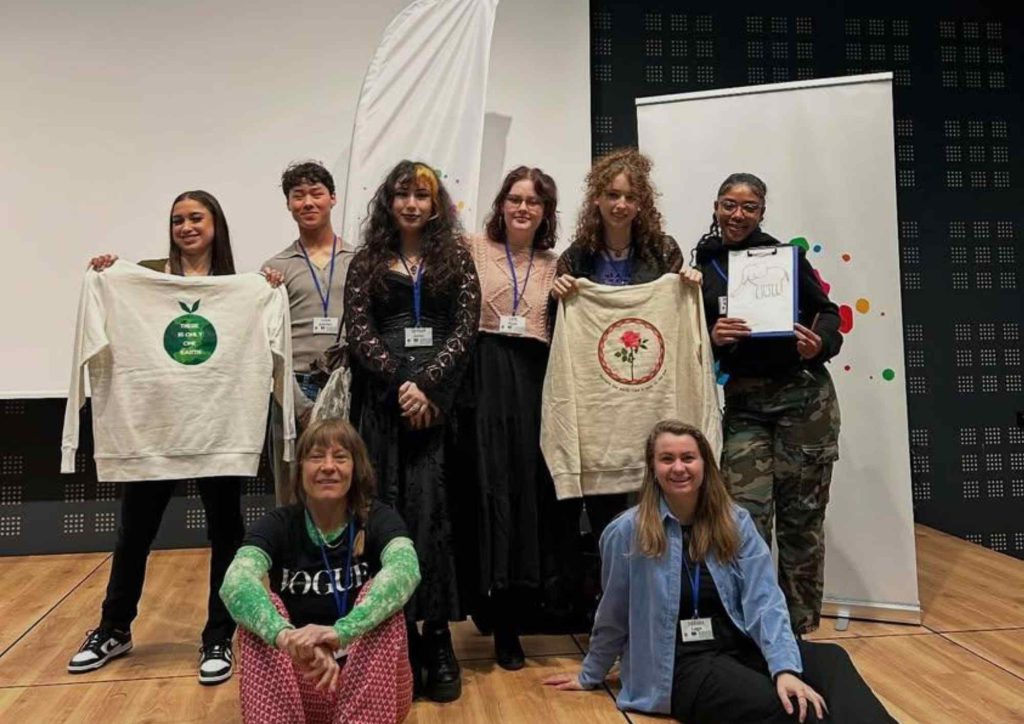
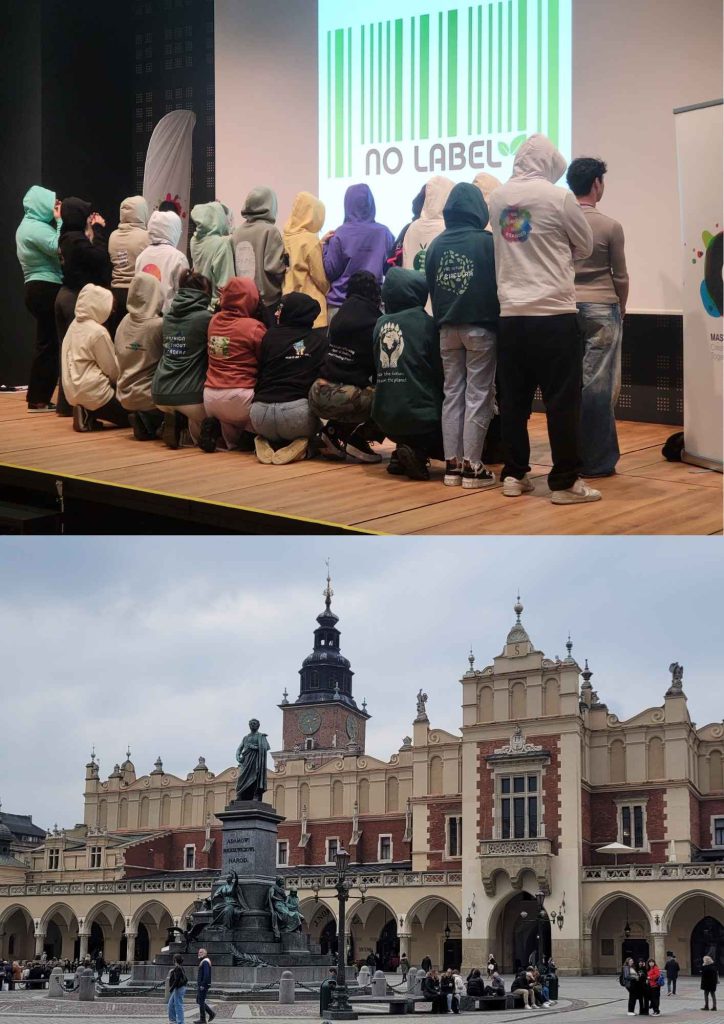
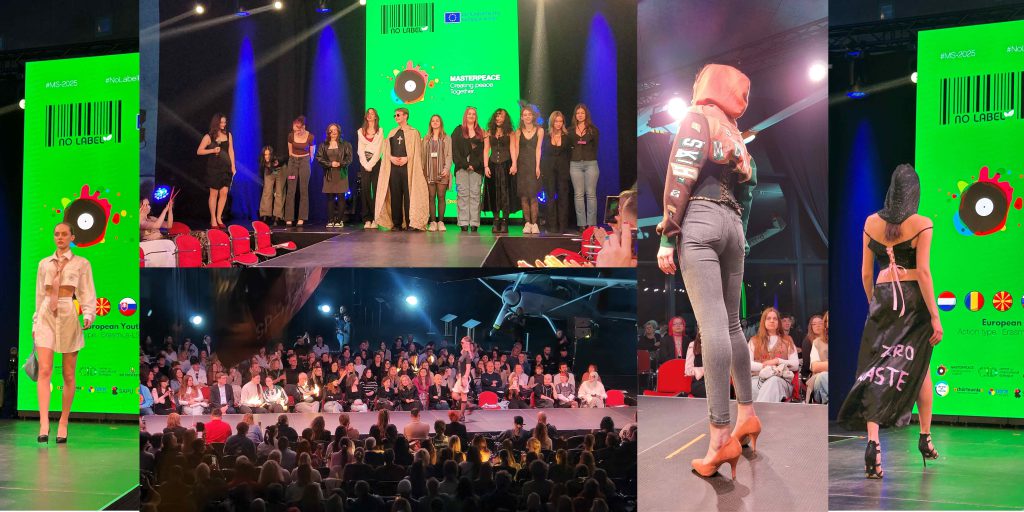
Day 2: Innovation & Collaboration 🎨♻️
The second day focused on hands-on experience:
- Singing workshop
- Upcycling workshop at SAPU Fashion School with young designers from across Europe.
- Visit to the Banksy Museum
- A shared dinner to celebrate collaboration and creativity.
A huge thank you to MasterPeace Poland for organizing this unforgettable experience. Follow us for more insights into this inspiring exchange! 🎥✨
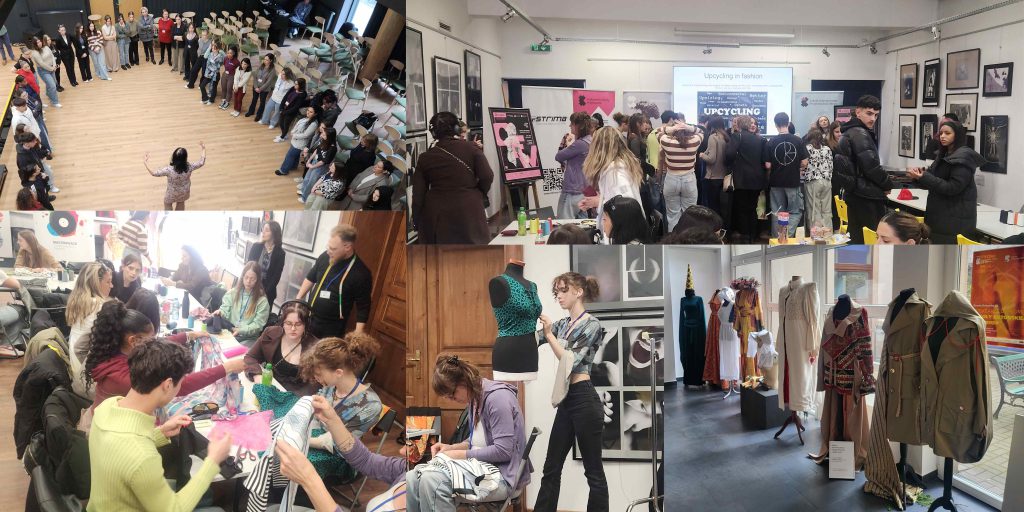
A Future of Sustainable Fashion 🌎✨
This journey proves that fashion can be both innovative and responsible. With young creatives leading the way, the future of fashion is looking brighter, greener, and more ethical than ever! 💚👠
Follow our journey and support sustainable fashion! 💙✨
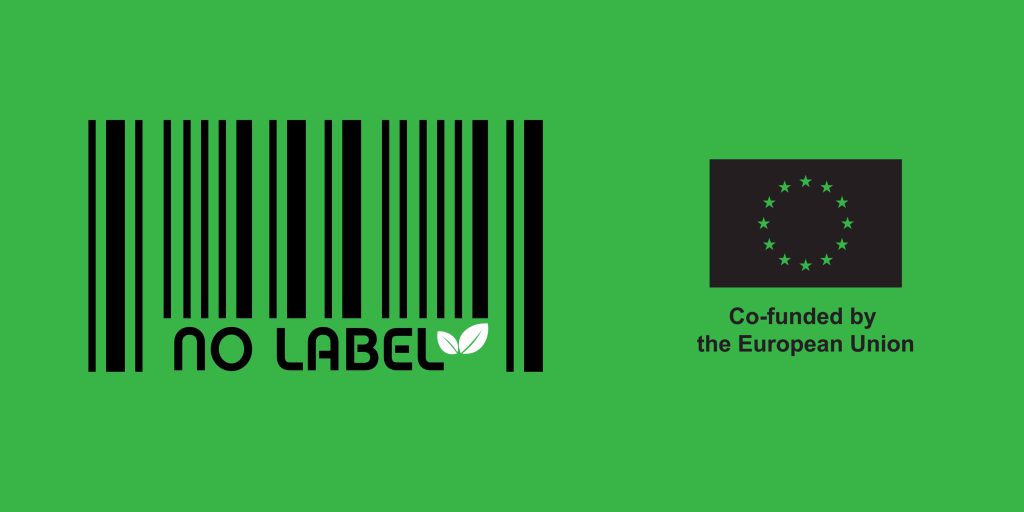
- All
- Africa
- Americas
- Asia
- Europe
- Global
- Highlights
- My Music Competition
- Podcast
- Uncategorized

